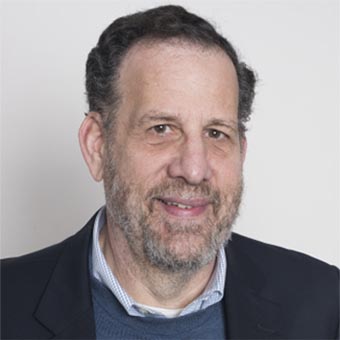Director's Letter
August 23, 2024
Dear Friends,
This week, we released a new study that explores the perspectives of non-Jewish students about Jews and Israel. This study is part of our program of research focused on understanding antisemitism on college campuses. The data are drawn from a new survey of over 4,000 students at 60 schools with large Jewish populations. Our findings paint a nuanced perspective of the situation on campuses. The study examined how non-Jewish students responded to nine explicitly negative statements about Jews and Israel, and found that their patterns of response suggest that these students fall into one of four groups.
The first group, constituting the majority of non-Jews students (two thirds) did not express hostility to Jews or Israel, and they are unlikely to be contributing to Jewish students’ concerns about antisemitism. The second group (15% of non-Jewish students), expressed hostile views about Israel; for example, that Israel has no right to exist and they would not want to be friends with a supporter of Israel, but rejected negative statements about Jews. A third group (16%) was willing to endorse explicitly anti-Jewish views, such as agreeing that Jews have too much power in America, that virtually all other students reject. The fourth and very small group (2%) were extremely hostile to both Jews and Israel. This group endorsed all negative statements about Jews and Israel. Jewish students’ concerns about a hostile environment on campus is likely driven by the three latter groups of students, who are very different from one another.
That only a minority of non-Jewish students on campus express hostility to Jews and Israel is, perhaps, reassuring. At the same time, one should not underestimate the impact a small group—whose voices are magnified by social media and other forces—can do, including undermining the educational mission of the university and campus communities as safe environments for all students.
The report offers several strategic suggestions for universities to address the current eruption of antisemitism on campus. Antisemitism, may be the “canary in the coal mine,” as hostility to Jewish students may be emblematic of issues faced by other groups on campus. Remediating the problem will likely involve a host of strategies that acknowledge the diversity of students’ attitudes.
On a personal note: At the Democratic National Convention, the parents of Hersh Goldberg-Polin appeared before thousands of delegates to share the story of their son, one of “109 treasured human beings,” who was abducted on October 7 and is being held hostage by Hamas in Gaza. Some in the arena wept, others chanted “Bring them home.” It was sad, but also uplifting, to witness how the assemblage stood up to support a mother and father. Despite their personal pain, they reminded us, “There is a surplus of agony on all sides of the tragic conflict in the Middle East. In a competition of pain, there are no winners.”
We pray for the return of the hostages to their families and a peaceful resolution to this conflict.
![]()
Leonard Saxe, PhD
Klutznick Professor of Contemporary Jewish Studies and Social Policy
Director, Cohen Center for Modern Jewish Studies and Steinhardt Social Research Institute at Brandeis University